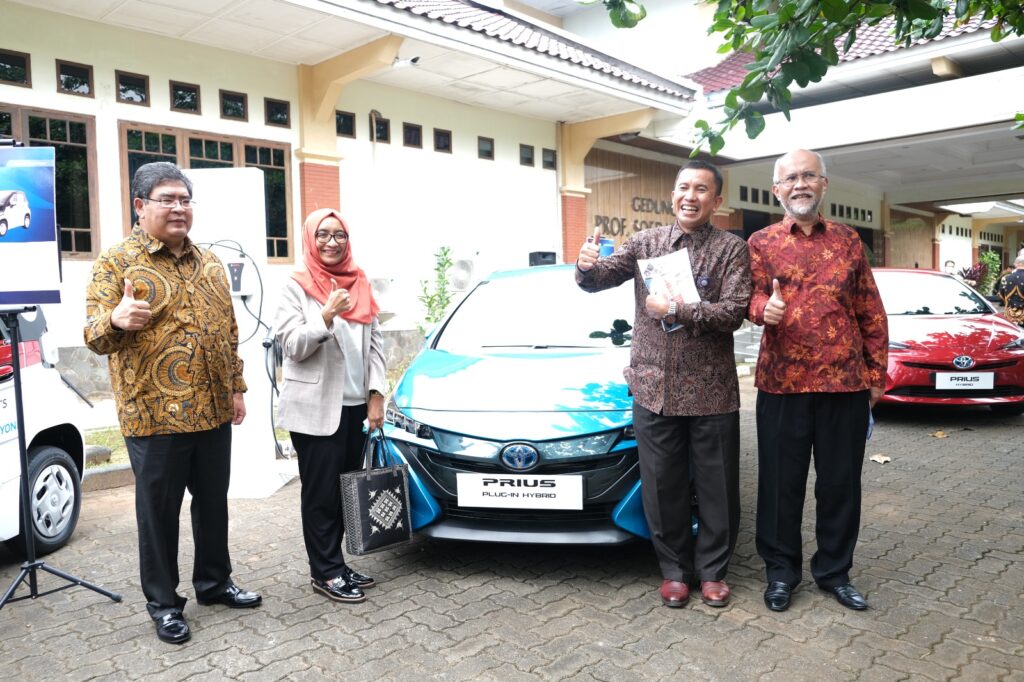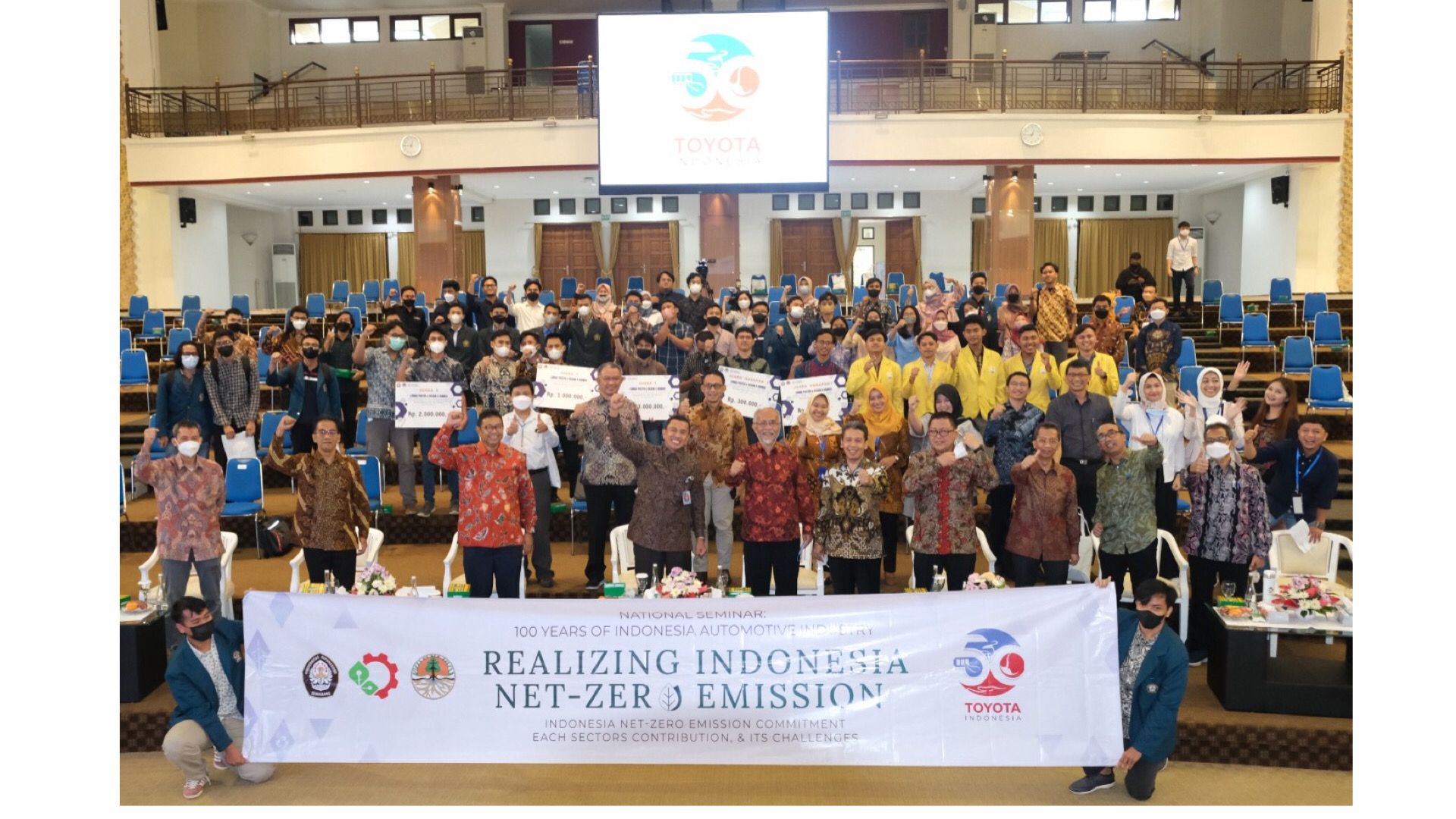Carbon emission is the biggest issue in the environmental sector. This topic is becoming a global concern in the modern world for creating a cleaner environmental ecosystem. Motorcycles with unclean fuel are going to harm the environment. Indonesia has also committed to achieving net-zero emissions (NZE) or zero carbon emissions by 2060. Certain agencies and third parties have also responded to this commitment, one of which is Toyota Motor Manufacturing Indonesia (TMMIN). This commitment cannot run well if it does not get support from other stakeholders. Therefore, TMMIN also held a national discussion involving three sectors (Triple Helix): the government, academia, and business actors.
Toyota collaborated with Diponegoro University (UNDIP), Semarang, and held a National Seminar with the theme “100 Years of Indonesia Automotive Industry, Realizing Indonesia Net-Zero Emission” in the Prof. building. Sudirman, Semarang, Central Java. The campus was chosen as the right place because Diponegoro University is qualified to prepare the younger generation with access to green movements, including innovation for the future. Cooperation between the triple helix is needed due to the development of electrification vehicles from policymakers, business industry, academics, and the public, especially the younger generation.
“Hopefully, this national seminar could be a stepping stone for comprehensive discussions to help and support Indonesia’s acceleration in achieving the Net-Zero Emission target. It can be achieved through cooperation between educational institutions, the younger generation, and the industrial sector, especially the national automotive industry,” said Warih Andang Tjahjono, President Director of PT Toyota Motor Manufacturing Indonesia (TMMIN), Wednesday (25/05).
Warih explained the actions to reduce emissions through various electrification technology ‘Multi-pathway’ to invite all parties to contribute to reducing carbon emissions. “As a business Industry, we must take an active role in achieving the goal of net zero emission, through environmentally friendly products with multi-pathways,” he explained.
The multi-pathway concept by Toyota does not only about the electrified vehicles, Battery Electric Vehicles (BEV), Hybrid Electric Vehicles (HEV), or Plug-In Hybrid Vehicles (PHEV). Implementing the multi-pathway concept must be followed by low-emission engine technologies such as Electronic Fuel Injection (EFI), Variable Valve Timing-Intelligent (VVT-I), Dual VVT-I, and others.
Toyota has already produced several products using the concept. BEV considered the pinnacle of electrification, is already present through the Lexus UX300e, and soon, there will be a Toyota bZ4X.
Toyota is also reportedly involved in implementing the Calya EV together with three universities, namely the Sepuluh November Institute of Technology (ITS), the University of Indonesia (UI), and the Bandung Institute of Technology (ITB). “Carbon emissions are the main problem for our environment” Let us make a great movie, everyone has the same opportunity to contribute to reducing carbon emissions. No one left behind,” he said.
In line with the NZE program, Toyota also supports environmentally friendly manufacturing processes known as Green Manufacturing. Hence, Toyota is also committed to eliminating and minimizing the environmental impacts generated by the entire chain of business activities.

Editor: Mardian
Translator: Nadia

